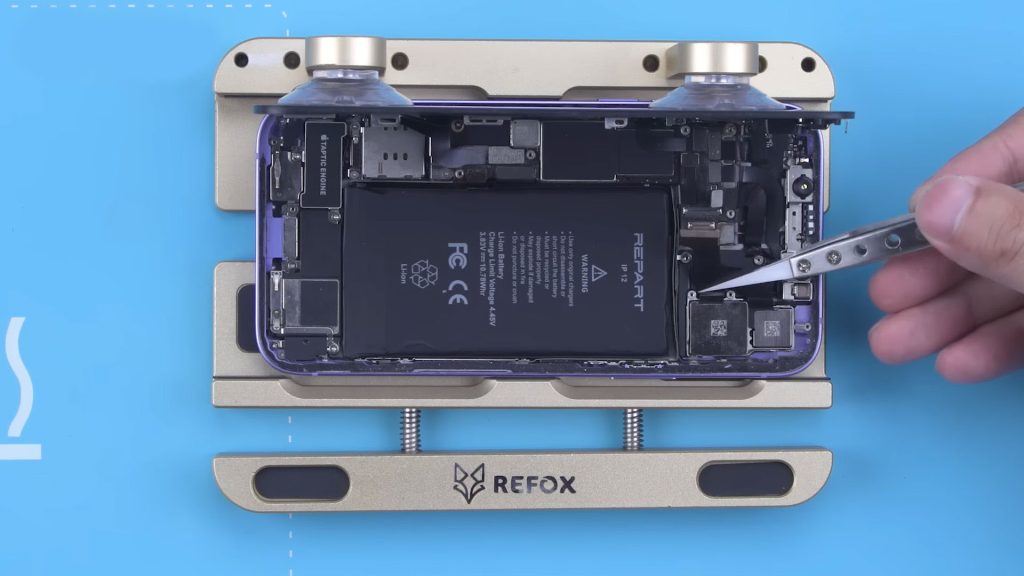
Having the right skills and certifications can significantly impact the salary of a cell phone repair technician. Employers value technicians who possess a diverse range of technical skills and certifications, as it demonstrates their expertise and ability to handle various repair tasks. By acquiring these skills and certifications, technicians can position themselves as highly qualified professionals in the field, which can lead to higher-paying job opportunities.
Basic Phone Repair Skills
To boost salaries, cell phone repair technicians should focus on acquiring and honing specific skills and certifications. Here are some essential skills that can have a positive impact on a technician’s earning potential:
- Technical Expertise: A strong foundation in cell phone fixing techniques, including diagnosing hardware and software issues, replacing parts, and conducting functionality tests, is crucial. Technicians with advanced technical knowledge and experience can command higher salaries.
- Problem-Solving Abilities: Being able to troubleshoot and identify the root cause of issues efficiently is highly valued in the industry. Technicians who excel at problem-solving can often earn higher salaries due to their ability to provide quick and effective solutions.
- Customer Service Skills: Excellent customer service skills are essential for building rapport with clients and ensuring customer satisfaction. Technicians who can communicate effectively, manage customer expectations, and provide exceptional service are more likely to earn higher salaries.
- Certifications: Obtaining industry-recognized certifications, such as the CompTIA Mobile Device Repair Technician (MDRT+) certification or a certificate from a reputable institute like REWA Academy, can significantly enhance a technician’s earning potential. These certifications validate the technician’s expertise and demonstrate their commitment to professional development.
Advanced Cell Phone Repair Skills
Cell phone repair technicians can acquire advanced skills and certifications that set them apart in the industry. These skills not only demonstrate expertise but also make technicians more valuable to employers. Here are some advanced skills that can significantly increase a cell phone repair technician’s earning potential:
- Micro soldering: Mastering the art of micro soldering allows technicians to repair intricate components on a circuit board, such as connectors and chips. This skill is highly sought after and can lead to higher-paying job opportunities.
- Software Unlocking: Being proficient in software unlocking techniques enables technicians to unlock locked devices, expanding their service offerings and attracting more customers.
- Component-Level Repair: Having the ability to diagnose and repair specific components within a device, such as replacing a faulty charging port or camera module, showcases advanced technical knowledge and can command higher pay.
- Advanced Troubleshooting: Being skilled in diagnosing complex issues and finding solutions quickly is invaluable in the fast-paced world of cell phone repair. Technicians who excel in troubleshooting are often rewarded with higher salaries.
- Certifications: Obtaining industry-recognized certifications, such as the Certified Electronics Technician (CET) or Certified Mobile Device Repair Technician (CMDRT), not only validates a technician’s skills but also increases their credibility and earning potential.
Certifications for Cell Phone Repair Technicians
Obtaining relevant certifications can significantly boost a cell phone repair technician’s skills and salary potential. Some popular certifications in the field include:
- CompTIA A+: This certification validates the knowledge and skills required for entry-level IT professionals, including cell phone repair. It can enhance a technician’s credibility and increase their earning potential.
- Apple Certified iOS Technician (ACiT): This certification program offered by Apple focuses on troubleshooting and repairing iOS devices. It demonstrates expertise in providing professional support for iPhones, iPads, and other Apple products.
- Samsung Mobile Care Professional Certification: This program equips technicians with the knowledge and skills to become experts in troubleshooting and repairing Samsung mobile products. It can enhance their job prospects and salary potential.
- Google Mobile Services Certified Technician (GMSCT): This certification program validates technicians’ expertise in repairing and maintaining Android-based mobile devices. It can open up opportunities for higher-paying jobs in the field.
- BlackBerry Certified Support Specialist (BCSS): This certification recognizes individuals who possess the skills and knowledge to support and troubleshoot BlackBerry devices. It can enhance a technician’s resume and salary prospects.
FAQ (Frequently Asked Questions)
What are some other skills that can boost a cell phone repair technician’s salary?
Other skills that can increase a cell phone repair technician’s salary include advanced troubleshooting abilities, soldering skills, and knowledge of different operating systems.
Are there any other certifications besides the Device Repair Professional credential that can enhance a cell phone repair technician’s salary?
Yes, there are other certifications such as the Certified Electronics Technician (CET) certification offered by the Electronics Technicians Association International (ETA) that can also contribute to higher salaries.
How much of a salary increase can a cell phone repair technician expect with additional skills and certifications?
The salary increase will vary depending on factors such as location, experience, and demand for technicians in the area. However, acquiring valuable skills and certifications can potentially lead to a significant boost in earnings.
Is it necessary to have both skills and certifications to increase a cell phone repair technician’s salary?
While having both skills and certifications is beneficial, it is not always necessary to have both. Some employers may prioritize certifications, while others may value practical skills and experience more. It is important to assess the requirements and preferences of potential employers in the industry.